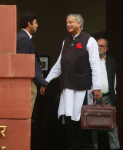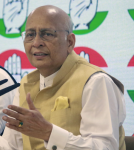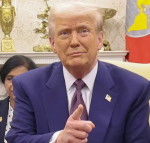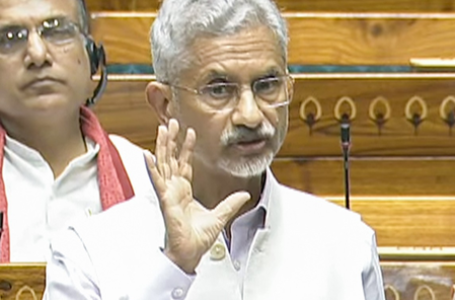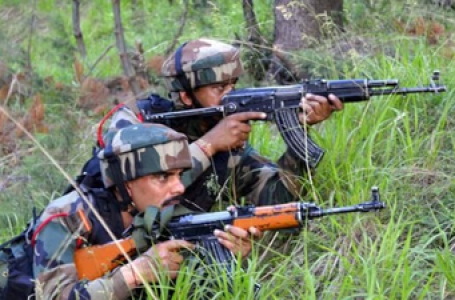
New Delhi: In a trenchant reply to the Leader of the Opposition during Monday’s Lok Sabha session, External Affairs Minister (EAM) S Jaishankar delivered a historically anchored and policy-forward defence of Operation Sindoor, articulating the deeper continuum of Pakistan-China strategic collaboration and its enduring implications for India’s national security.
Reframing the two-front narrative, the EAM Jaishankar said that by recalling a pattern of military, economic, and diplomatic alignment between Islamabad and Beijing over six decades, he sought to reframe the “two-front threat” as not a product of contemporary escalation but a structural reality that Indian diplomacy and defence must now reckon with decisively.
The Minister’s remarks were aimed not only at rebutting immediate Parliamentary criticism but at laying out a layered timeline of geopolitical convergence between India’s two principal adversaries – a convergence, he argued, that long predates the current government and demands sober reflection beyond partisan lines.
“The person who said (two front threat) it, must have missed the history lesson from school,” EAM Jaishankar quipped, before tracing the arc from Pakistan’s cession of the Shaksgam Valley to China in 1963, to Bhutto’s initiation of nuclear cooperation in 1976, and landmark developments including Gwadar’s transfer in 2013 and the formal launch of the China-Pakistan Economic Corridor thereafter.
“We are getting warnings now,” he noted pointedly, “but this collaboration has been going on for 60 years.”
The timeline he invoked included the 1966 agreement on the Karakoram Highway, its completion two decades later, and successive Chinese arms transfers and infrastructure investments – evidence, in Jaishankar’s view, of a long-range strategy that merits far more than rhetorical concern.
Pivoting to Operation Sindoor, External Affairs Minister Jaishankar asserted that the retaliatory strikes in Bahawalpur and Muridke were both militarily calibrated and diplomatically synchronised with a broader campaign to expose Pakistan’s duplicity at global forums.
“Who among you thought these terrorist hideouts would be destroyed like this?” EAM Jaishankar asked, positioning the operation as not just a kinetic action but a declaration of new strategic resolve.
India’s response also included the suspension of the Indus Waters Treaty, closure of the Attari border, cancellation of visas for Pakistani nationals, and the diplomatic expulsion of Islamabad’s mission staff – decisions that marked a shift from symbolic protest to concrete disruption.
In one of the speech’s most acerbic turns, EAM Jaishankar critiqued the opposition’s “habitual equivocation,” referencing Rajiv Gandhi’s visits to both China and Pakistan during the peak of Sino-Pak nuclear cooperation in the 1980s.
He further highlighted previous governments’ facilitation of Chinese technology in India’s telecom sector, drawing a sharp contrast with the Modi administration’s push for indigenous 3G and 4G frameworks. This government has prioritised Made in India technology, which others have allowed from China, he said.
EAM Jaishankar also cited strong international support for India’s actions post-Pahalgam – from the US designation of The Resistance Front as a terror entity to statements by Germany, Russia, and multilateral forums that affirmed India’s right to self-defence.
“The world sees what is happening and believes India has reacted responsibly,” he said, suggesting a shift in global narrative that India had successfully brokered through assertive diplomacy.
He also reaffirmed India’s uncompromising stance on cross-border terrorism and highlighted the nation’s growing diplomatic resonance on the global stage in the wake of recent attacks. Referring to the May 7 attack in Pahalgam – widely attributed to Pakistan-backed operatives – the minister noted that India’s position had been “very, very clear” in its operational response, rejecting nuclear intimidation and insisting that any dialogue must channel through formal military channels such as the Director-General of Military Operations.
“The world sees what is happening and feels that India has reacted responsibly,” EAM Jaishankar stated, citing a broad consensus of international condemnation.
He referenced collective censure from multilateral bodies, including the Quad and BRICS, emphasising alignment on the issue of cross-border terrorism.
“China, Russia, Iran, Egypt – all have condemned the attack, reinforcing our right to bring perpetrators to justice,” the Minister said.
He added that the Indian Ocean Rim Association and individual leaders such as Russian President Vladimir Putin had termed the assault a “brutal crime without justification.”
The minister also spotlighted the recent designation of The Resistance Front as a global terrorist organisation, attributing the development to India’s sustained diplomatic engagement.
“Our diplomacy worked – Tahawwur Rana is now in custody, and TRF stands designated as global terrorists,” he remarked.
In recounting his dialogue with global counterparts, including the German Foreign Minister, Jaishankar noted vocal support for India’s sovereign right to defend itself.
His response to the Opposition member pivoted to a critique of opposition stances, particularly in the context of China.
The minister questioned the engagement of opposition figures with the Chinese Ambassador during border tensions and criticised prior trade and technology concessions made under the Congress-led administration.
The Minister concluded with historical reflection, invoking past dialogues between India and Pakistan post-26/11 and referencing the now-discredited notion of moral equivalence between victims and perpetrators of terror.
He warned against political habits that blur lines of national interest in the face of strategic threats.
IANS




